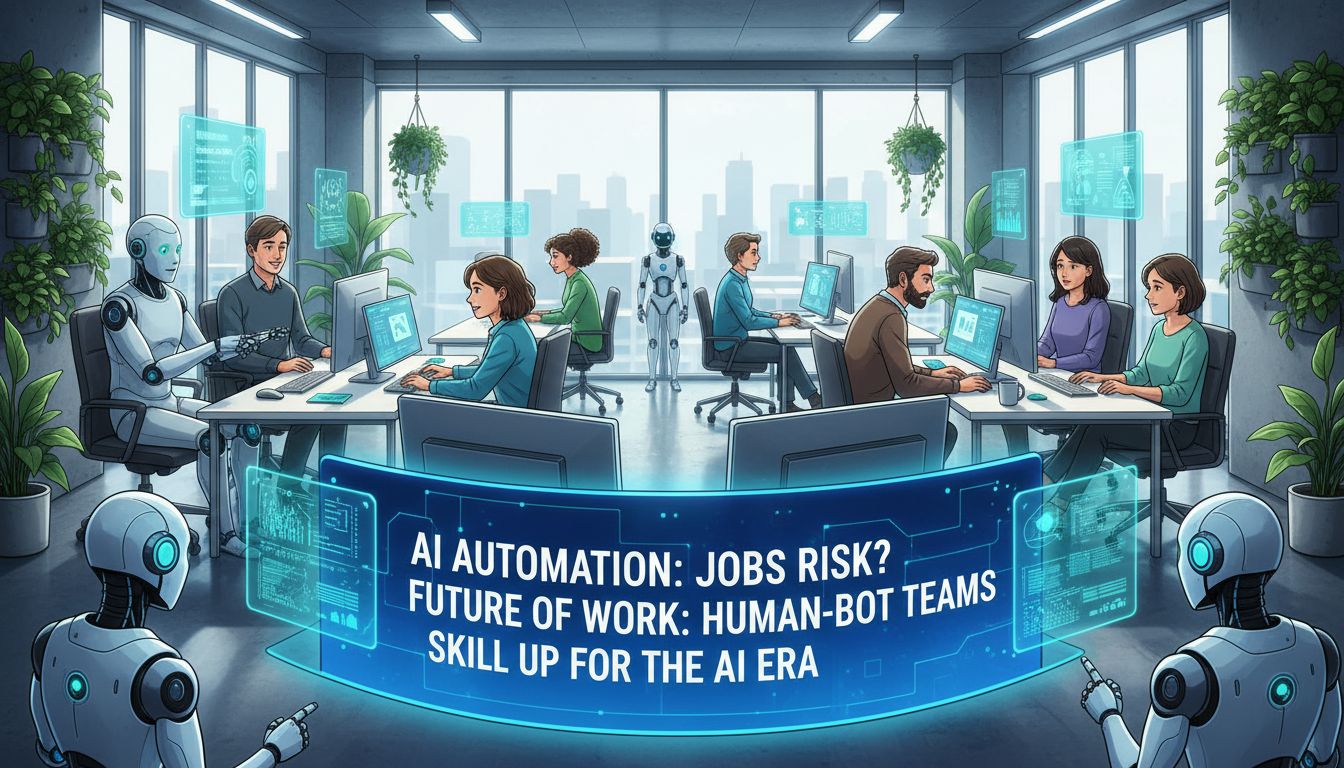Imagine stepping into the future of finance and brushing shoulders with a revolution. A world where artificial intelligence isn’t just a buzzword but the backbone of the accounting profession. It’s here, transforming how we approach numbers, data entry, and financial analysis.
The scene has dramatically shifted from pencils scratching on ledgers to algorithms predicting cash flow trends. 75% of accountants believe their jobs will significantly change in five years because of AI. Yet, amidst this seismic shift, there is an ocean of opportunity for those ready to ride the wave.
Gone are the days when accountants were buried under mountains of paperwork. Nowadays, artificial intelligence-driven platforms are stepping in to handle routine chores such as billing management and examining data sets. This isn’t just about saving time; it’s about reshaping what it means to be an accountant in today’s digital age.
By weaving machine learning and natural language processing into the fabric of global enterprises, we’re unlocking innovative avenues for making strategic choices that steer businesses towards success. Imagine leveraging AI tools not only for crunching numbers but also for providing insights into market trends, customer behavior, and competitive analysis. By melding machine learning with natural language processing, businesses are now equipped to swiftly navigate the fast-paced world of commerce, making enlightened choices that keep them at the forefront.
Table Of Contents:
- The Impact of AI on the Accounting Profession
- Automation of Repetitive Tasks by AI
- The Rise of Strategic Accounting
- The Growth Trajectory of AI in Accountancy
- Enhancing Accuracy and Efficiency
- Preparing for an AI-Driven Future
- Ethical Considerations and Data Security
- Case Studies – AI Transforming Accounting Firms
- FAQs in Relation to Ai Impact on Accountancy
- Conclusion
The Impact of AI on the Accounting Profession
AI stands on the brink of transforming the accounting landscape, promising a seismic shift in how things are done.
AI’s about to totally flip the script in accounting by streamlining tasks and ramping up efficiency like never before. We’re talking a total game-changer here.
Shifting Paradigms in Accountancy
Get ready for some serious changes in the accounting landscape, all thanks to AI coming in hot.
The way we tackle tasks is undergoing some major transformations. A total upheaval of the status quo.
Accountants’ Perspective on AI
So, how are the pros feeling about AI muscling in on their turf?
Interestingly, they’re not just sitting on the fence; they’ve got their opinions ready. 75% of accountants think AI’s going to make a huge impact on the profession in the next five years. That’s a lot of people seeing the writing on the wall.
Automation of Repetitive Tasks by AI
Let’s dive into how AI’s set to take over all those boring, repetitive tasks. You know, the ones that make you want to gouge your eyes out?
Yeah, those. AI’s got them covered. 60% of accountants are betting on AI to automate the mind-numbing stuff. And get this: ABC Consulting predicts AI could automate up to 50% of accounting tasks. Half. Imagine what you could do with all that free time.
The Rise of Strategic Accounting
With AI taking care of the grunt work, accountants are free to level up and get strategic.
We’re talking about pivoting to more high-level roles within businesses. The landscape is completely transformed, brimming with possibilities.
From Numbers to Strategy
Picture this: accountants going from traditional bookkeeping to being the financial gurus, the strategic masterminds.
Their roles are evolving, big time. They’re not just crunching numbers anymore – they’re shaping the future of companies. AI’s paving the way for accountants to become the ultimate strategic advisors. And that’s pretty darn exciting.
AI is changing the game in accounting by automating tasks and opening doors for accountants to become strategic advisors. Get ready for a major shift where efficiency meets strategy.
The Growth Trajectory of AI in Accountancy
AI is taking the accounting world by storm. Moreover, this rapid acceleration shows no signs of easing up in the foreseeable future.
In fact, the use of AI in accounting is expected to skyrocket by a whopping 40% over the next three years. That’s a game-changer for the industry.
More and more firms are realizing the potential of AI to revolutionize their operations. They’re jumping on the bandwagon and investing in this transformative technology.
The result? A landscape that’s rapidly evolving, with AI at the forefront. For accountants poised on the brink of tomorrow, these are thrilling days indeed.
But what does this growth trajectory mean for you? It means opportunity. The chance to be part of a new era in accounting, where AI is the driving force behind innovation and progress.
So buckle up and get ready for the ride. We’re on the cusp of an exhilarating adventure in accounting, powered by the AI revolution that’s only beginning to unfold.
Enhancing Accuracy and Efficiency
Let’s face it: accuracy and efficiency are the bread and butter of accounting. And that’s exactly where AI shines.
With AI technologies, the precision and speed of financial reporting and analysis are reaching new heights. It’s like having a superhero sidekick that never gets tired or makes mistakes.
In fact, a whopping 80% of accountants believe that AI will improve the accuracy and efficiency of financial reporting. That’s a ringing endorsement, if I’ve ever heard one.
Imagine being able to process vast amounts of data in a fraction of the time it used to take. Or catching errors and discrepancies that might have slipped through the cracks before. That’s the power of AI.
But it’s not just about crunching numbers faster. AI is also helping accountants make more informed decisions by providing real-time insights and predictive analytics. Possessing this tool is akin to holding a magical orb, granting visions of your financial destiny.
So if you want to stay ahead of the game in accounting, embracing AI is a no-brainer. It’s the key to unlocking new levels of accuracy and efficiency that will set you apart from the competition.
Preparing for an AI-Driven Future
The AI revolution is here, and it’s not going anywhere. As an accounting professional or student, you have two choices: adapt or get left behind.
But don’t worry, preparing for an AI-driven future is easier than you might think. It all starts with embracing continuous learning.
AI is revolutionizing accounting, promising a 40% growth in its use within three years. This shift means big opportunities for innovation and efficiency in financial reporting. By embracing AI, accountants can process data faster, catch errors more effectively, and make smarter decisions with predictive analytics. The future of accounting is AI-driven—get ready to embrace continuous learning to stay ahead.
Ethical Considerations and Data Security
AI in accounting is a game-changer, but it’s not all sunshine and rainbows. Integrating AI into the delicate world of finance raises significant ethical dilemmas and data protection issues, given its involvement with highly sensitive monetary details.
Think about it: AI is handling some of the most confidential financial information out there. We’re talking about people’s personal finances, business secrets, and more. If that data falls into the wrong hands, it could be catastrophic.
Hence, it’s critical for bookkeeping entities to implement rigorous data management strategies when incorporating artificial intelligence. They need to ensure that all data is encrypted, secure, and only accessible by authorized personnel.
But it’s not just about protecting data; there are also ethical considerations to keep in mind. For example, what happens if an AI system makes a mistake that costs a client money? In such a scenario, who bears the burden of accountability for the mistake made?
How do we address the issue that AI, if not carefully managed, might continue to propagate existing prejudices? If an AI system is trained on historical financial data that contains biases, it could end up making biased decisions that unfairly impact certain groups of people.
These are just a few of the ethical and security concerns that come with using AI in accounting. Businesses must thoughtfully weigh these matters and establish protective measures to minimize any lurking dangers.
Because, at the end of the day, the benefits of AI in accounting are huge, but they can’t come at the cost of compromising ethics or data security. Navigating the tightrope between innovation and integrity, companies must master this equilibrium to thrive in the AI-enhanced landscape of accounting.
Case Studies – AI Transforming Accounting Firms
Alright, enough with the hypotheticals. Let’s talk about some real-world examples of accounting firms that are absolutely crushing it with AI.
First up, we’ve got EY. These guys are using AI to automate repetitive tasks like data entry and document review, freeing up their accountants to focus on more strategic work. And the results speak for themselves – EY has seen a 50% reduction in the time it takes to complete certain tasks.
Next, we’ve got PwC. By leveraging artificial intelligence, they’re sifting through extensive financial records to unearth patterns that might elude human detection. This has allowed them to provide more accurate forecasts and catch potential fraud before it happens.
And then there’s KPMG, which is using AI to streamline its tax compliance processes. By automating routine tasks, they’re not just speeding things up; they’re also freeing up their team to focus on more complex issues. Embracing automation underscores the pivotal role of innovation in maintaining a competitive edge within the dynamic realm of finance and accounting.
AI in accounting is revolutionary, but it brings ethical and data security challenges. Firms must balance innovation with safeguarding client data and ethics to thrive.
FAQs in Relation to Ai Impact on Accountancy
What will be the impact of AI on accounting?
AI streamlines tasks, slashes time spent on routine work, and boosts accuracy. Accountants get to focus more on strategy.
How does AI affect financial performance?
By improving data analysis and forecasting, AI enables sharper decision-making. This leads to healthier financial outcomes for businesses.
Will accountants be automated?
Routine tasks? Yes. But the strategic advising and complex problem-solving parts? No way. Accountants just get cooler tools.
Will CA be replaced by AI?
Nope. Chartered Accountants’ expertise in navigating regulations and offering personalized advice is something AI can’t replicate yet.
Conclusion
So, here we are at the edge of a new dawn where artificial intelligence isn’t just reshaping our world; it’s fundamentally redefining what it means to work in accounting. Forget those old Hollywood tales of AI doom; this narrative is about empowerment, efficiency, and evolution.
The revolution has begun. Machines crunching numbers? That’s yesterday’s news. Nowadays, artificial intelligence acts as an unseen ally in our strategic endeavors, navigating the complex market labyrinth with the expertise of a well-traveled guide. It automates the tedious so we can tackle the challenging, transforming accountants into indispensable advisors in an ever-changing financial landscape.
And let’s not forget that a whopping 75% of accountants are gearing up for change within five years because they see what’s coming. They’re not bracing for impact; they’re preparing to lead the charge.
This isn’t just about making jobs easier or saving time—it’s a complete overhaul of how value is created and delivered in finance sectors across the globe. As machines learn to handle more complex tasks with grace, humans will pivot towards roles that require emotional intelligence and strategic foresight—skills no algorithm can replicate (yet).
We’ve thrown down quite the knowledge gauntlet today: AI is set to be less Terminator and more trusted advisor—an ally poised to elevate every aspect of accounting from mundane task management to high-level strategizing.
If there was any doubt before about whether AI would take over accounting… Well, let’s just say it might—but only as much as we allow it to, and strictly on our terms.
Check out our other articles for the Newest AI content.






